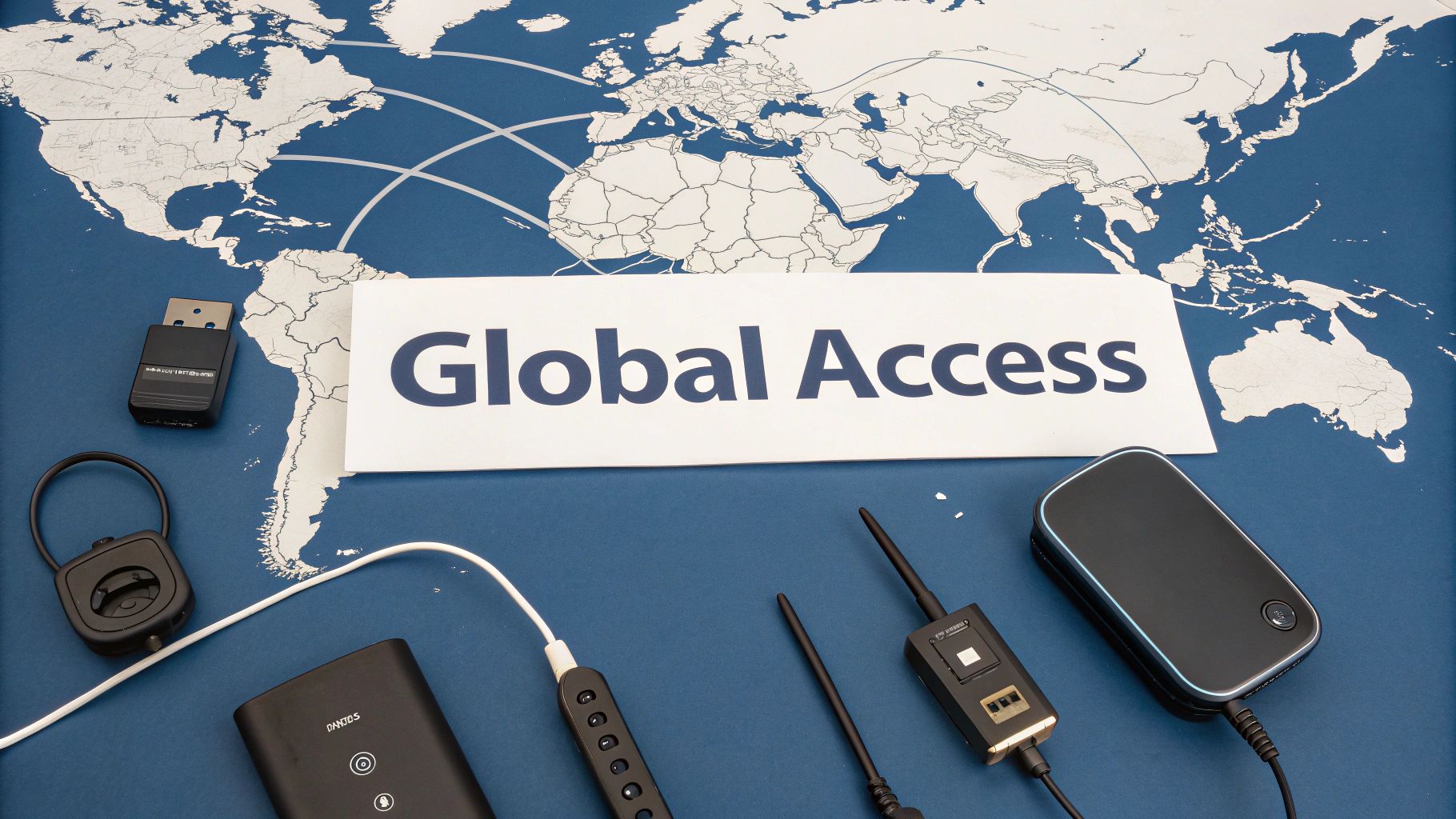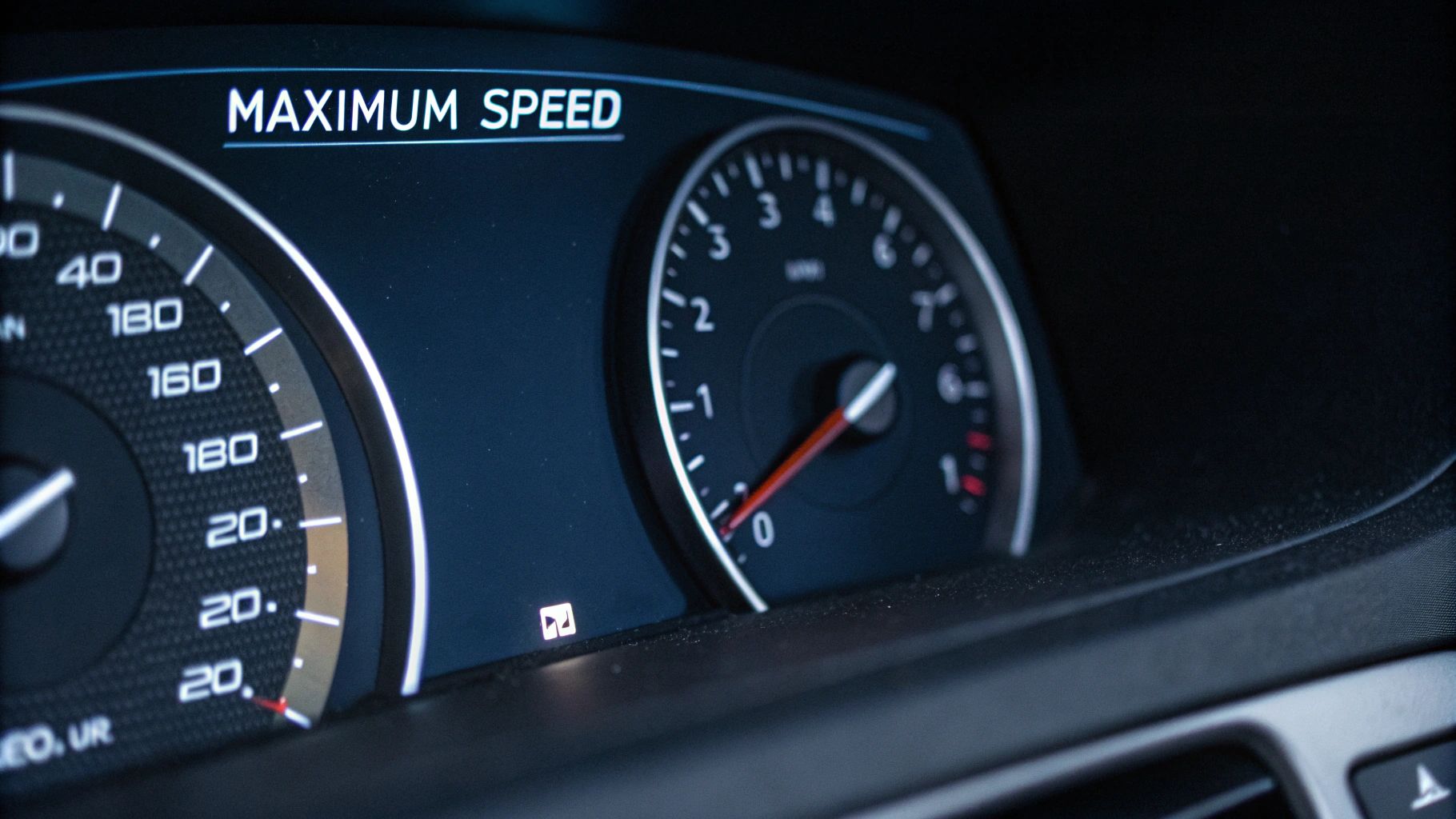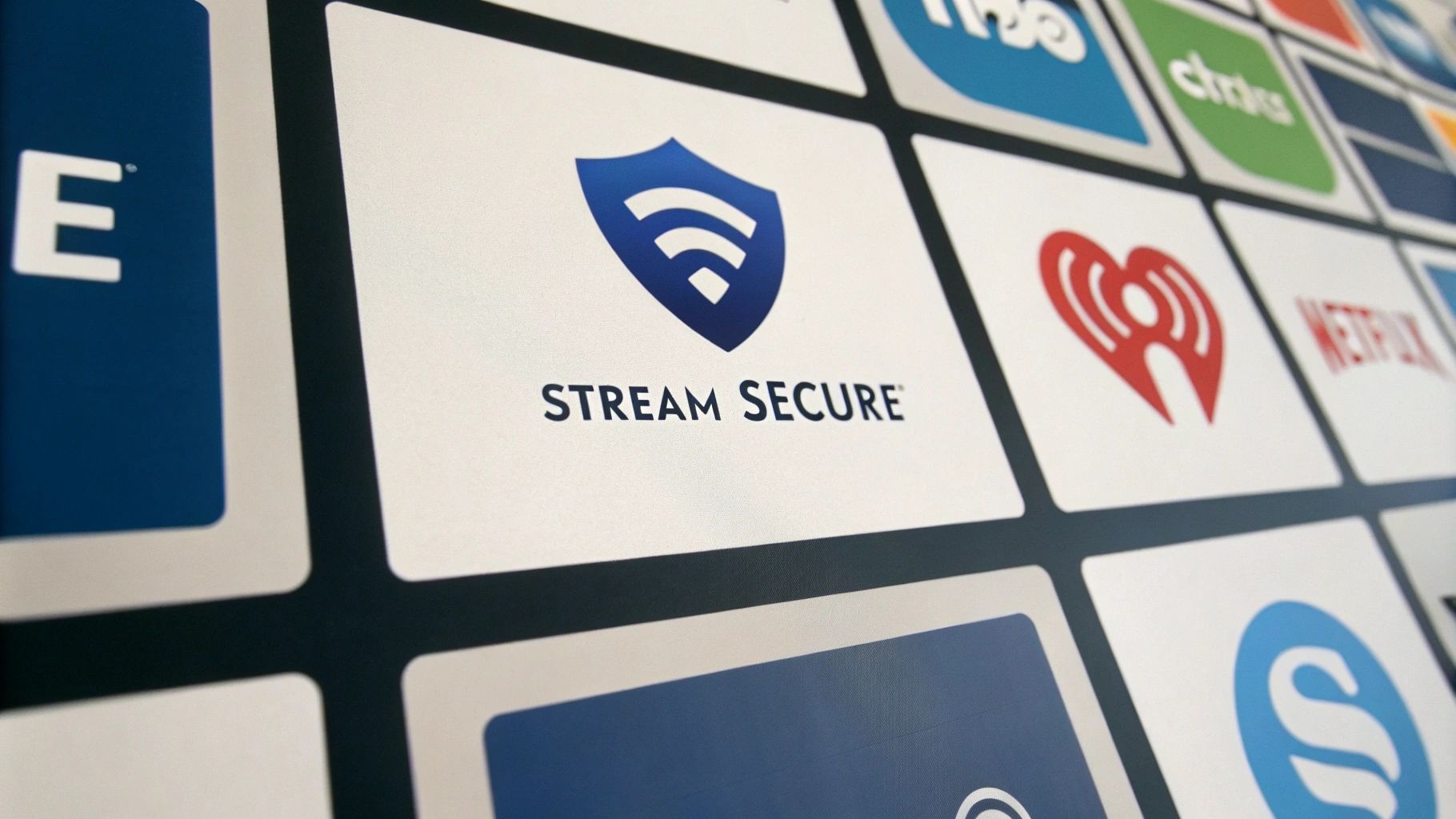Best VPN for Streaming: Watch Anything, Anywhere in 2024
Introduction to VPN Streaming

Streaming services like Netflix, Hulu, and Amazon Prime Video have become central to how many of us enjoy entertainment. However, geo-restrictions often limit our access to the full range of content available on these platforms. This is where a VPN designed for streaming becomes invaluable. A VPN, or Virtual Private Network, creates a secure connection, masking your actual location and making it appear as if you're browsing from a different country. As a result, you can access a world of content otherwise unavailable in your region. For instance, imagine wanting to watch a show exclusive to the UK while residing in the US; a good streaming VPN can make this a reality.
Why a VPN is Essential for Streaming
VPNs offer several key advantages for streamers, extending beyond simply bypassing geo-restrictions. One significant benefit is overcoming bandwidth throttling. Many streaming services deliberately slow down your connection during peak viewing times. The right VPN can help circumvent this issue, leading to a smoother, buffer-free streaming experience. Additionally, a VPN enhances your online security by encrypting your data. This is particularly crucial when using public Wi-Fi, which can be vulnerable to security breaches. By encrypting your connection, a VPN protects your sensitive information from potential threats. Ultimately, these benefits contribute to a more secure and enjoyable streaming environment.
Common Challenges and How the Right VPN Helps
While the advantages of using a VPN for streaming are undeniable, there are potential downsides users should consider. One common issue is a reduction in internet speed. Some VPNs can noticeably slow down your connection, leading to buffering and lower video quality. However, a well-optimized VPN for streaming minimizes this by using servers designed for high-bandwidth activities. Another challenge lies in finding a VPN that consistently unlocks your desired streaming services. Not all VPNs are equal in their ability to bypass geo-restrictions. This highlights the importance of choosing a reputable VPN provider with a proven history of unblocking popular streaming platforms. By understanding these challenges and selecting the right VPN, you can enjoy a seamless and unrestricted streaming experience.
How VPNs Unlock Global Content
Encountering geo-restrictions while trying to stream can be incredibly frustrating. But how does a VPN overcome these digital barriers? The process revolves around masking your IP address, which functions like your online location identifier. Think of it like sending a letter: the post office uses the address to deliver it to the right place. Similarly, streaming services use your IP address to pinpoint your location and provide content accordingly. A VPN changes this "address," making it seem like you're sending that letter from a different city, or even a different country altogether.
Bypassing Geo-Restrictions
This change of online "address" is the key to accessing global content. When you connect to a VPN server in a particular country, your internet traffic is routed through that server. This means your IP address is replaced with one from that country, effectively masking your true location. For example, if you’re in the US and want to access BBC iPlayer (only available in the UK), you would connect to a UK-based VPN server. The streaming service would then register a UK IP address, granting you access. This principle applies to any geo-restricted content, making a VPN a valuable tool for any serious streamer.
The Role of Encryption in Secure Streaming
A high-quality VPN does more than just change your IP address; it also encrypts your internet traffic, adding a vital layer of security. This encryption scrambles your data, making it unreadable to anyone trying to intercept it. Think of it like putting your letter in a locked box before sending it; only the intended recipient with the key can open the box and read the contents. Similarly, encryption protects your online activity, ensuring your streaming habits and other personal information stay private.
Optimizing Your Streaming Experience with a VPN
Choosing the right VPN involves several considerations. Speed is paramount. A slow VPN can result in constant buffering and poor video quality, negating the benefits of accessing global content. Therefore, selecting a VPN with fast servers and optimized connections is crucial. A broad server network also matters. A wider range of server locations gives you more options for bypassing geo-restrictions and enjoying content from different regions. The combination of speed, security, and a robust server network makes a great streaming VPN. By choosing a VPN with these qualities, you can enjoy uninterrupted access to worldwide entertainment, no matter where you are.
Top VPN Features for Streaming
Choosing a VPN for streaming requires more than just selecting a random service. You need to consider specific features that enhance your streaming experience. This means focusing on elements that guarantee smooth access to geo-restricted content, high speeds, and robust security. It's like choosing a car: you wouldn't pick just any car; you'd consider fuel efficiency, horsepower, and safety features based on your needs. Similarly, choosing a VPN involves assessing key features.
Essential Features to Look For
What distinguishes a good streaming VPN from the rest? Here's a breakdown of key features:
- Fast Download Speeds: Buffering interrupts any streaming experience. A VPN with fast download speeds is crucial for uninterrupted viewing. A faster VPN allows more data to flow, leading to smoother streaming.
- Wide Server Network: A large server network across various countries is vital for accessing geo-restricted content. More server locations offer more options for bypassing regional blocks. Each server location is like a key to accessing content in a specific region.
- Strong Encryption: Online security is crucial, especially during streaming. A VPN with strong encryption protocols, like AES-256, secures your data and keeps your streaming habits private. This is like sending your data through a secure tunnel.
- Device Compatibility: A good streaming VPN should function seamlessly across your devices, from your phone and laptop to your smart TV and gaming console, enabling unrestricted streaming regardless of the device.
- User-Friendly Interface: A complicated interface makes using a VPN frustrating. The best options offer intuitive interfaces that simplify connecting to servers and managing settings, much like a well-designed car dashboard.
The Importance of Dedicated Streaming Servers
Beyond these core features, some VPNs offer dedicated streaming servers, optimized for high-bandwidth activities. This is like having a dedicated lane on a highway for faster travel. These servers can greatly enhance your streaming experience, especially for high-definition or 4K streaming, reducing buffering and ensuring a smoother viewing experience. Prioritizing these features ensures you choose a VPN that unlocks a world of entertainment.
Speed and Performance
Access to global content is excellent, but it's pointless if your stream constantly buffers and displays low-resolution video. Speed and performance are crucial when choosing a streaming VPN. A VPN can naturally add some latency as your data travels through the VPN server. However, a well-designed VPN minimizes this, providing adequate speeds for seamless streaming. Think of it like choosing between two routes: a scenic route with winding roads and a fast highway. The highway, like a good VPN, gets you there quickly.
Understanding the Impact of VPNs on Speed
Several factors affect how a VPN impacts your streaming speed. The distance between you and the VPN server matters. Data travels faster over shorter distances, so connecting to a server closer to you usually results in better speeds. For example, connecting to a UK server from the US will likely experience a more significant speed reduction than connecting to a Canadian server. The VPN protocol also matters. Some, like WireGuard and OpenVPN, are known for speed and efficiency. It's like choosing different modes of transportation – a high-speed train will be faster than a bus.
Key Performance Metrics for Streaming
When choosing a VPN, consider key performance metrics. Download speed is vital for smooth video playback. Upload speed, less crucial for streaming, remains important for other online activities while connected. Latency, or ping, measures the time it takes for data to travel to the server and back. High latency causes lag, disrupting your streaming. It's like playing an online game with high ping – your actions would be delayed.
Optimizing Speed for the Best Streaming Experience
To optimize speed, choose a VPN with a large server network, allowing you to select a server closer to your location. Look for VPNs offering dedicated streaming servers optimized for high-bandwidth activities. This leads to less buffering, higher resolution, and a more enjoyable streaming experience. By understanding these factors and choosing a VPN that prioritizes speed and performance, you can unlock global content without sacrificing quality, ensuring a seamless experience.
Security and Privacy
We’ve covered the benefits of using a VPN for streaming, such as accessing geo-restricted content and improving speed. Equally important is understanding how a VPN improves your security and privacy. This isn't simply about hiding what you watch; it’s about protecting your data and identity. Think of it like closing your curtains – you're creating a more secure and private space.
How VPNs Protect Your Data
A good streaming VPN uses encryption to secure your online activity. Encryption converts your data into an unreadable format, protecting it from potential interception. This is especially important when using public Wi-Fi, which is often unsecured. Imagine sending a postcard versus a sealed letter. Anyone can read a postcard, but only the recipient can access a sealed letter. Encryption safeguards your data, protecting sensitive information like passwords.
Privacy Benefits of Using a VPN for Streaming
Besides encryption, a VPN masks your IP address, essential for privacy while streaming. Your IP address can reveal your location and other identifying information. Replacing your IP address with the VPN server's effectively makes you anonymous online. This prevents your internet service provider (ISP) from seeing your online activity, including streaming habits. For example, if you're streaming content your ISP might throttle, a VPN prevents detection and slowdowns. Some services log user data and even sell it to advertisers. A VPN hinders this by masking your IP address.
Choosing a VPN with Strong Security Features
Prioritize VPN providers that offer robust security when making your selection. Look for VPNs using strong encryption protocols like AES-256 and a strict no-logs policy. This means the provider doesn’t store records of your online activity. Consider features like a kill switch, which automatically disconnects your internet if the VPN connection drops, preventing IP address exposure. By evaluating security features and choosing a reputable provider, you can enjoy secure and private streaming, protecting your data and identity.
Best VPNs for Popular Platforms
We've discussed the importance of speed, security, and a wide server network for streaming VPNs. However, your chosen streaming platform influences which VPN is best. Different platforms have different levels of geo-restrictions and security measures. The best VPN for Netflix might differ from the best VPN for Hulu. This section explores the top VPNs for popular platforms, aiding your decision-making.
Best VPN for Netflix
Netflix actively tries to block VPNs, constantly updating its systems. The best VPN for Netflix needs to stay ahead of these restrictions. Providers like NordVPN and ExpressVPN consistently bypass Netflix's geo-blocks. They offer vast server networks, regularly updated IP addresses, and dedicated streaming servers, ensuring reliable access to various Netflix libraries. For example, if you're traveling and want to access your home Netflix library, these VPNs can make it possible.
Best VPN for BBC iPlayer
BBC iPlayer is exclusive to the UK. Accessing it from elsewhere requires a VPN with UK servers capable of bypassing BBC iPlayer's detection methods. NordVPN is a reliable choice, offering multiple UK servers optimized for streaming. Its fast speeds ensure smooth playback, even in high definition. Whether you want British dramas or live sports, a reliable VPN can bring UK content to you.
Best VPN for Hulu
Hulu, like Netflix, uses geo-restrictions. A good Hulu VPN must bypass these restrictions while maintaining fast speeds. ExpressVPN and Surfshark successfully access Hulu from various locations. Surfshark offers a good balance of speed and affordability.
Best VPN for Amazon Prime Video
Amazon Prime Video also has geo-restricted content. The best VPN for it must reliably bypass these restrictions with consistent speeds. NordVPN and CyberGhost are often recommended, thanks to their robust server networks and dedicated streaming servers. These minimize buffering and ensure smooth playback, which is particularly important for live sports.
Best VPN for Disney+
Disney+ is globally popular, but its content library differs regionally. A good Disney+ VPN needs to provide access to different libraries while maintaining high speeds. NordVPN and ExpressVPN consistently access Disney+ from various locations, ensuring you can enjoy Disney's catalog regardless of location. By considering these platform-specific recommendations and focusing on speed, server network, and security, you can select the best VPN for your streaming needs.
Setup and Troubleshooting
Having explored VPN advantages and features, you're likely ready to enjoy unrestricted content. This section guides you through setting up your VPN and troubleshooting common issues. Setting up a VPN is generally straightforward, like installing any new app. However, understanding the process can make it even smoother.
Step-by-Step VPN Setup Guide
Most VPN setups follow a similar pattern. First, choose a VPN provider. Consider speed, servers, and security. Then, create an account and subscribe. This is like signing up for any online service. Next, download the VPN app for your device. Reputable VPNs offer apps for various devices. Install the app and log in.
Connecting to a VPN Server
Next, connect to a VPN server. The app displays available server locations. Choose a server in the country matching the content you want. For BBC iPlayer, choose a UK server. Connecting usually involves clicking a button. The VPN establishes a secure connection quickly, changing your virtual location.
Troubleshooting Common VPN Issues
While setup is usually simple, you might encounter issues. A failed connection could be due to network problems or server overload. Try a different server or restart your device. Slow speeds can be addressed by connecting to a closer server or checking your internet speed without the VPN. Some services actively block VPNs. If you encounter this, contact your VPN provider's support. Troubleshooting is like diagnosing a car problem – you check different components. By following these steps and addressing potential problems, you can enjoy a smooth streaming experience.
Ready to enhance your streaming experience? Visit DebugBar.com at https://www.debugbar.com for more on VPNs, streaming optimization, and other tech tips. DebugBar.com offers insights into the latest digital trends and tools.



Comments
Leave a comment